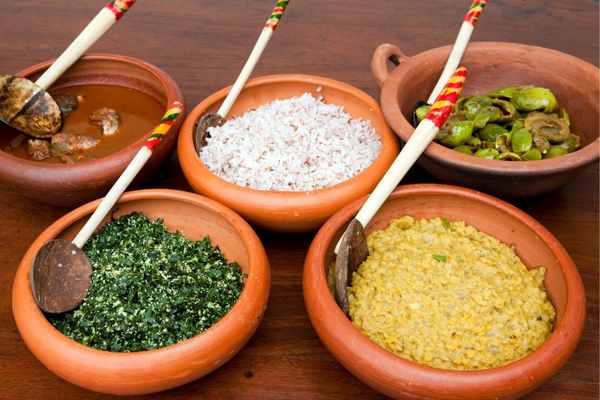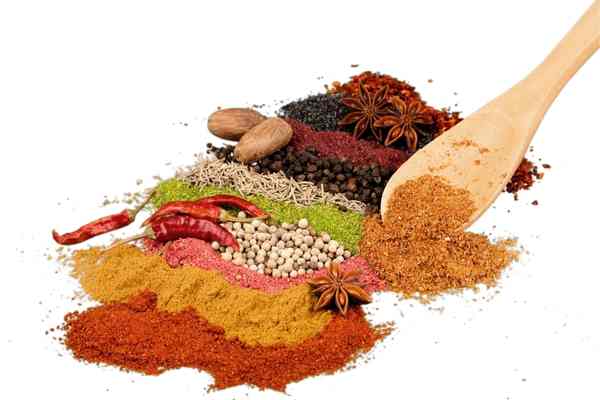Exploring the Rich and Diverse Cuisine of Sri Lanka – By Nadeeka – eLanka

Sri Lanka’s cuisine is a vibrant fusion of flavors and cultures. From the piquant aromas of spices to the diversity of curries, the country’s food is a celebration of its diverse history and heritage. The cuisine draws influence from Indian, Malay, Portuguese, and Dutch cooking, all the while integrating the flavors of Sri Lanka’s own tropical landscape.
One of the defining features of Sri Lankan cuisine is the use of aromatic spices, such as cinnamon, cardamom, clove, cumin, coriander, and turmeric. These spices are used to create complex and layered flavors that are both bold and subtle. Sri Lankan food is not known for being particularly spicy, but the flavors are always intense.
The foundation of Sri Lankan cuisine is rice and curry, the island nation’s staple meal. Rice is boiled and mixed with a curry made of meat or fish and vegetables, all of which are cooked in a coconut milk base. The curry’s flavor varies according to the meat or vegetables used and the type of curry powder. Lentil-based dhal and a fiery sambal made of onions, tomatoes, and chili are two other vegetable dishes that are commonly served with rice and curry.
In addition to rice and curry, hoppers and roti are among the most popular dishes in Sri Lankan cuisine. Hoppers, which are made from fermented rice flour and coconut milk, are bowl-shaped pancakes. They are usually served with an egg cracked into the center, or alongside a vegetable or meat curry. Roti, a type of flatbread made from wheat flour, is typically filled with vegetables, eggs, or meat and served with a side of sambal or curry.
Sri Lankan cuisine’s street food is world-renowned for its variety and flavors. Kottu roti, a blend of chopped roti, vegetables, and meat, is a popular and filling street food. Samosas, a savory pastry filled with spiced potatoes and vegetables, and vadai, a savory doughnut-shaped snack made from lentils and spices, are both common street foods as well.
Sri Lankan cuisine’s desserts are just as tasty and satisfying. Wattalappam is a steamed pudding made from coconut milk, jaggery, and spices. Pani pol, a pancake filled with coconut and jaggery, is another popular dessert. Finally, kiribath, a type of rice pudding made with coconut milk and served with jaggery or honey, is a favorite treat among locals.

Sri Lankan cuisine is a unique culinary experience that is a testament to the country’s rich cultural heritage. From rice and curry to hoppers, street food, and desserts, the cuisine offers a wide variety of dishes and flavors to satisfy every palate. Visitors to Sri Lanka should not miss the opportunity to sample the country’s diverse and vibrant cuisine.
Sri Lankan cuisine is not only delicious but also has several health benefits, thanks to its use of fresh and wholesome ingredients, as well as its unique cooking techniques. Here are some of the health benefits of Sri Lankan cuisine:
- Rich in Antioxidants: Sri Lankan cuisine is loaded with antioxidants, which are compounds that protect our cells from damage caused by free radicals. Spices such as turmeric, cinnamon, and ginger, which are commonly used in Sri Lankan cuisine, are all rich in antioxidants.
- Low in Fat: Sri Lankan cuisine is traditionally low in fat, thanks to its reliance on coconut milk as a base for curries instead of dairy cream or butter. Coconut milk is a healthier alternative as it is a plant-based product with lower saturated fat content.
- Good Source of Protein: Many Sri Lankan dishes contain a good amount of protein, which is essential for building and repairing tissues in the body. Lentils, beans, and legumes are commonly used in Sri Lankan cuisine, which are all excellent sources of protein.
- Helps Control Blood Sugar: The use of whole grains like red rice and millets in Sri Lankan cuisine helps regulate blood sugar levels. These grains are low on the glycemic index, which means they do not cause a sharp spike in blood sugar levels and keep you feeling full for longer periods.
- Boosts Immunity: Sri Lankan cuisine is loaded with immunity-boosting ingredients such as garlic, onions, and turmeric, which have natural antibiotic and anti-inflammatory properties that can help fight off infections and diseases.
- Promotes Digestive Health: Sri Lankan cuisine’s use of spices and herbs like cumin, coriander, and curry leaves helps promote healthy digestion. These ingredients have carminative properties that can help alleviate bloating, gas, and constipation.
- Helps Manage Weight: Sri Lankan cuisine is high in fiber, which makes you feel fuller for longer, preventing overeating and weight gain. The use of whole grains, fruits, and vegetables in Sri Lankan dishes also helps maintain healthy body weight.
Sri Lankan cuisine is not only delicious but also has several health benefits. Its reliance on fresh and wholesome ingredients, low-fat content, and immunity-boosting properties make it a healthy choice for food lovers. With its unique blend of flavors and healthy ingredients, Sri Lankan cuisine is a must-try for anyone looking to eat healthy without compromising on taste.







